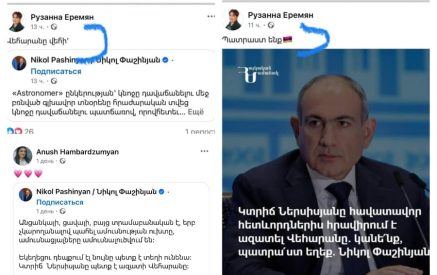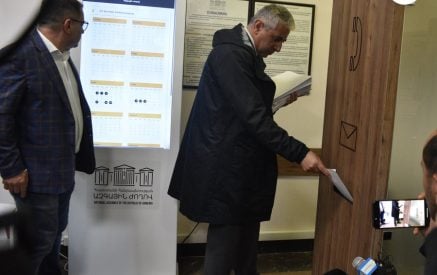Why do pro-government supporters become oppositionists? Certainly, for various reasons. Everything is clear in the West, the establishment is defeated at the election and works normally as opposition, trying to take “revenge” (there is no negative connotation in that word) at the next election. However, in Russia and Armenia the establishment has never been “defeated”, it has always been reproduced, therefore the mentioned mechanism doesn’t apply. So there can be other reasons for becoming an oppositionist. Sometimes they are absolutely honest – the moment comes and a man sees everything clear and he cannot tolerate the shortcomings of the establishment, a part of which that man was yesterday. Certainly, there are more interesting cases. E.g. a representative of the establishment demands “I should appoint the chief of police (or attorney) in my neighborhood.” You know why he makes such a demand, don’t you? Because that chief of police or attorney “will look reverently” at his patron and his businesses. So, if that man is denied, he becomes an ardent oppositionist and a passionate fighter against the rule of bandits.
However, all those “transient” cases have one thing in common – people, being in power, do not see the shortcomings that become obvious for them after losing the power. Certainly, there is the following logic, “When I was in power, everything was great, when I left, everything was spoiled.” There is even a Soviet-Armenian joke in that regard – Kochinyan is fired from the office of the First Secretary of the Central Committee and on the next day he goes to the shop to buy some sausages and he sees a-kilometer-long line. “Now you will understand how good Anton Yervand Kochinyan’s rule was”, concludes the former leader. I.e. man is not ready psychologically to accept that the situation during his rule was as bad as it is now.
I remembered that in regard to the latest election in Russia. Suppose, Aleksey Kudrin didn’t have a conflict with Medvedev two months ago. Would he notice in that case that the election was conducted unfairly? Certainly, no. Cannot one say the same thing about Mikhail Kasyanov or Boris Nemtsov – if they were the Prime Minister and the Deputy Prime Minister, would they care for the election fraud as much as they care now? Again, no, because an election of the same quality was held during their rule.
Certainly, the same thing applies to our politicians. I am convinced that after the parliamentary election conducted in May, Tigran Torosyan will explain very skillfully how the whole election process has been rigged. However, he will have to draw parallels with the 2007 National Assembly election to be more convincing. The thing is former officials lack those very parallels.
Read also
ARAM ABRAHAMYAN




















































